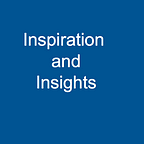Clarity Coaching - Doug Pardo LionPoint Coaching
Impactful coach-client relationships require a coach that a client connects with and whose teaching method is effective for said client’s personal growth and learning styles.
There are different types of coaching styles, such as business-therapy coaching or skill coaching. The best model for you depends on your personality, values, business context, and your professional and individual goals.
The LionPoint Coaching team prioritizes helping clients to find the best coaching technique for them, rather than taking on someone who may not fit with the team’s coaching style.
While different models work for different people, the LionPoint team believes in the ‘clarity coaching’ model. Doug Pardo, the founder of LionPoint coaching, detailed ‘clarity coaching’ in a recent article for the organization:
“Clarity coaching centers on diagnosing and dissecting problems raised by the leader to specifically identify their role in the confusion that is driving the lost productivity. Clarity coaches believe that accomplishing goals occurs by creating the ideal context for the specific leader based on what is learned in the sessions. The results are leader-specific design changes focused on promoting clarity across the leadership, management, and culture dimensions. Leaders of fast-paced, high context-shifting organizations with ambitious, entrepreneurial goals are often most aligned with clarity coaching.”
Doug Pardo also included a story from a client that showed the impact that clarity coaching can have on a client. This highly personalized approach centers the entire coaching experience on a specific client and their context. His client reflected that:
“[Doug’s] intention in all of our conversations has been to help me reach clarity — and that meant asking always kind but sometimes very direct questions that dissolved all at once a mental block that was holding me back. Doug works to understand his clients in all their complexity and dimensions and is incredibly adept at helping sort through noise and confusion to help us find our true north and a real home.”
This model can be challenging at times because it asks clients to claim responsibility and focus on the tension points in their teams and organizations. Doug said that the leaders and executives who most often connect with clarity coaching readily “accept personal responsibility before all else, and find themselves in environments that demand constant and rapid team evolution.”
Business therapy coaching is often best used for clients who are looking for emotional support and assurance of their actions. Skill based coaching, on the other hand, is used when looking to improve a specific skill. Skill based coaches most likely have previous success in that specific area, like oration. Clarity coaches, however, are most often defined by the challenging and diverse contexts that have worked in. Pardo is no stranger to rapidly changing contexts, having led troops in Iraq and Afghanistan as well as serving at Bridgewater Associates and Booz & Company.
LionPoint’s services are geared toward this style of highly individualized, high touch coaching. Doug and his team have created an infrastructure to support leaders in high rate of change contexts. By implementing the clarity coaching model, LionPoint Coaching is helping individuals, organizations, and teams actualize their potential.
